'It's a very lonely world': For LGBT conservatives, anti-gay legislation prompts frustration, doubts
- Oops!Something went wrong.Please try again later.
Jennifer Williams, a transgender woman who also chairs the Trenton Republican Committee in New Jersey, has tried to win over conservative hearts from within.
As the first openly transgender delegate to the 2016 Republican Convention in Cleveland, she went out of her way to meet people, she said. In one conversation with a high-profile delegate from South Carolina, Williams first connected with the man through common issues – economic policy, her family’s military background and her admiration for South Carolina’s then-Gov. Nikki Haley. Then she turned the conversation to the anti-transgender legislation under discussion in that state.
“I told him, ‘By hurting me, you’re hurting my family,’” Williams said. “We are the most likely to have violence committed against us, and these laws make it harder for every transgender person to get a job or buy a house. People start fearing us without knowing us.”
As Republican lawmakers across the nation debate and pass legislation limiting the rights of LGBT people, gay and transgender conservatives like Williams said they are becoming increasingly concerned about whether the Republican Party is really the best fit for them and whether enough Republicans can band together to stop the measures.
About 80 anti-trans measures involving athletics, education, health care or bathroom access were proposed in 2020, a number that almost doubled to 147 last year. Heading into 2022, that number nearly doubled again to 280, according to the Human Rights Campaign, one of the country’s largest lesbian, gay, bisexual, transgender and queer civil rights groups.
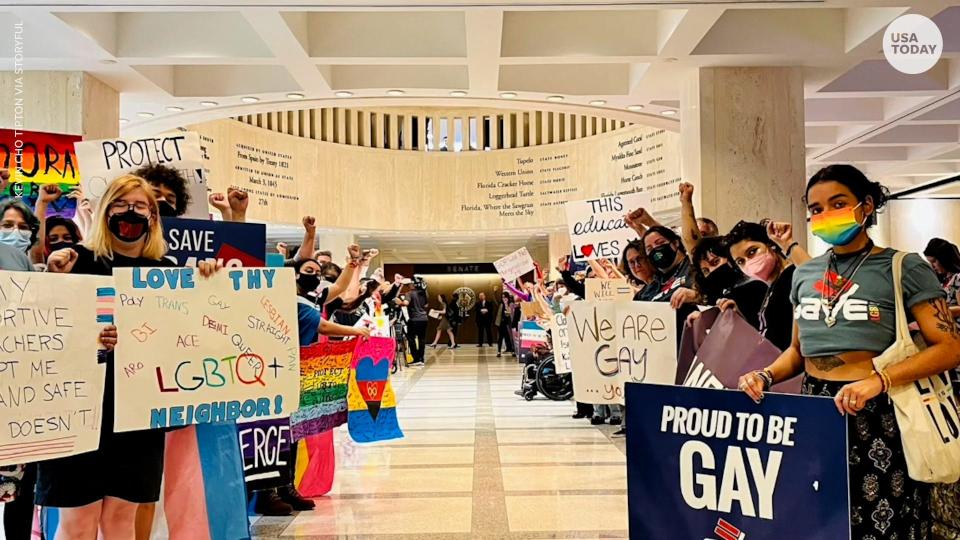
On Monday, Florida Gov. Ron DeSantis signed into law new restrictions on discussion of sexual orientation or gender identity in Florida schools, derided by opponents as the “Don’t Say Gay” bill. Last month in Texas, Gov. Greg Abbott issued a directive ordering the state's child-welfare agency to investigate gender-affirming medical care for adolescents as child abuse, a measure now on hold after a state judge ruled the governor exceeded his authority.
At the same time, Republican governors in Utah and Indiana last week vetoed measures barring transgender athletes from participating in girls' sports, calling them unnecessary.
“The directly impacted population is very small,” said Trey Grayson, a former Kentucky secretary of state and conservative community activist who advocates for LGBT rights. “But if you want to prove your conservative bona fides, the incentives are high. A lot of legislators probably don’t know transgender people, so it’s one of those things where, ‘I can signal that I’ve got traditional values, and I’m not going to be impacting people I know.’”

Many such bills, Grayson said, are capitalizing on sentiments stirred up by the success of NCAA swimmer Lia Thomas, who this month became the first known transgender athlete to win a Division I title. Thomas' victory in the 500-yard women's freestyle swimming championship sparked debate over whether transgender athletes have an unfair advantage.
“That created a lot of bad timing for these bills,” Grayson said. “People who might have thought they were picking on this group (transgender people) might now think, ‘I’m not picking on this group. I’m defending women.’ My guess is we will see a rash of these bills pass right now.”
On a broader scale, however, he said,
“As more Americans identify as LGBT, more family members are saying, that’s my daughter, that’s my son or my cousin or my neighbor,” Grayson said. “All of a sudden, it’s not these ‘others’ – it’s your family, friends and coworkers.”
'Lives are being destroyed'
Williams, of New Jersey, said having control over one’s own life and identity is a core tenet of Republicanism. She’s thankful that this year’s best actress winner at the Oscars, Jessica Chastain, was so vocal in calling attention to the rash of bills targeting the trans community, “because many people aren’t hearing that.”
“Lives are being destroyed,” Williams said. “When you feel like you have to move from a state where you’ve started a career, where you have friends, but your state government is threatening to take your children away, that’s not America.”
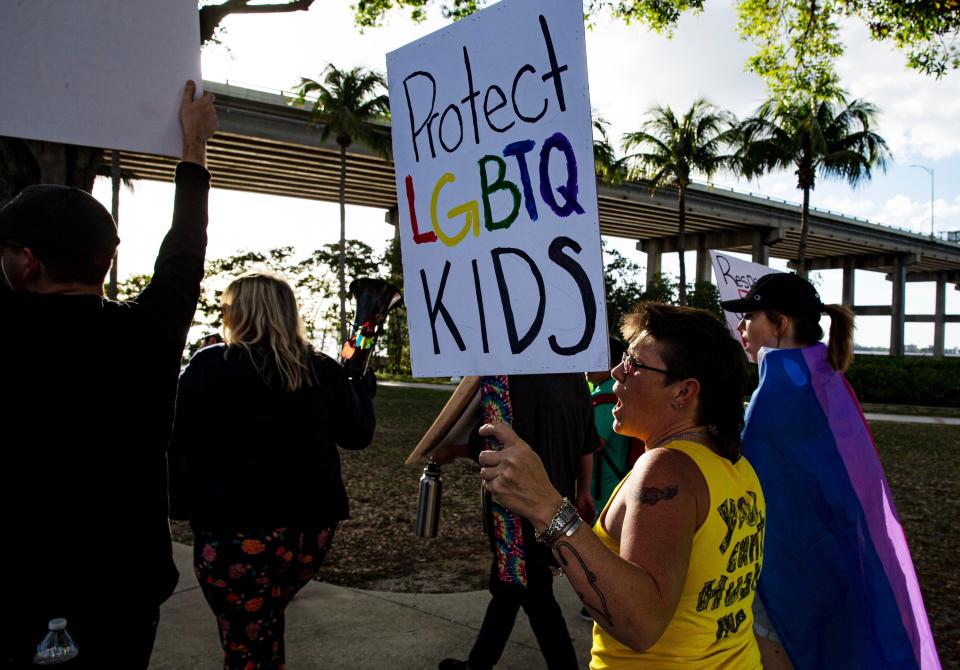
She said some trans conservatives feel as though they're fighting these battles without much help.
“The most disconcerting part for us as transgender people is that we’re not as large as the LG community,” Williams said. “We don’t have the money and the resources that they have. Too many of them, once same-sex marriage was approved, kind of went to the sidelines. A lot of transgender people for many years helped in that fight, and now we’re fighting for our lives.”
In the meantime, Williams said she focuses on person-to-person diplomacy, reaching out to lawmakers and governor's offices to discuss LGBTQ rights. Williams has also attended the annual Conservative Political Action Conference, where she and Jordan Evans, a fellow transgender conservative woman from Massachusetts, have stationed themselves in conference corridors while holding a Pride flag reading “Don’t Tread on Me” to initiate conversations.
She recalled a man from a Southern state who approached them, teary-eyed and wanting to hug them. His lesbian daughter, a Marine, was so happy -- something he'd felt he couldn't share with anyone back home.
"He was heartsick that he couldn't tell anyone," Williams said. "It felt like he was coming out, in a sense, as a very loving and supportive father of his LGBTQ child. It made all of our efforts to be there and be present so worth it."
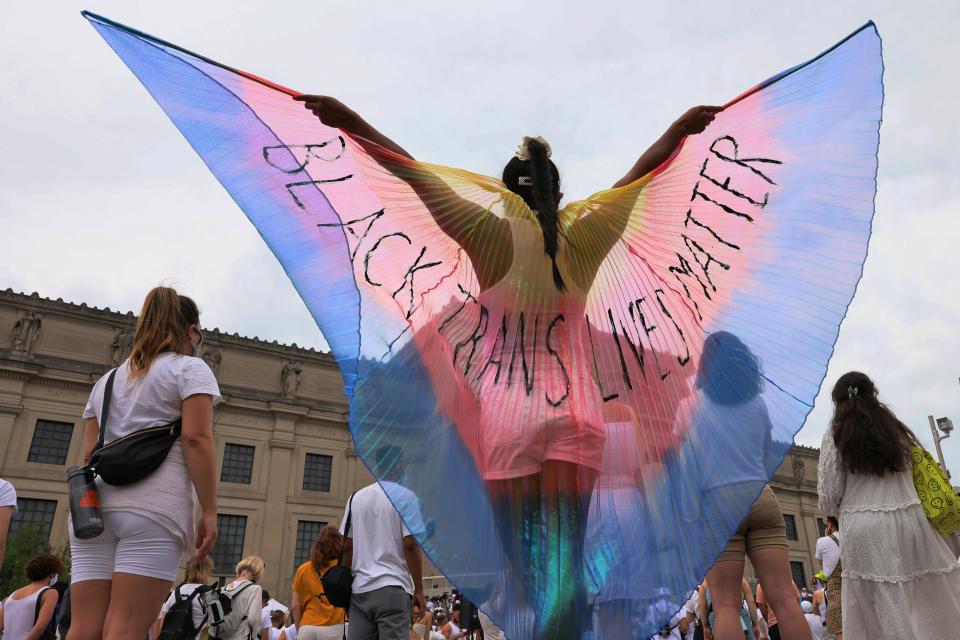
Not every interaction at those conferences was as moving or as successful. Some minds didn't budge. But having those kinds of discussions, Williams said, ultimately can break down walls.
“By having a conversation and showing no fear, they have to respect you at some point,” she said. “People listening will have their hearts changed. Once you vilify someone and don’t engage with them, it’s a lot easier to do damage to that person. But for every person who meets us, that’s maybe one less person who’s going to vote against us.”
'We're at a crossroads'
Casey Pick, an attorney and longtime LGBT advocate who once served on the national staff of Log Cabin Republicans, a national conservative LGBT organization, said many anti-transgender bills are pushed by candidates looking to scare up fundraising among their constituents.
“This has been an interesting year, and I think we’re at a crossroads,” Pick said.
Noting last week's gubernatorial vetoes in Utah and Indiana, “we’re reaching a point where many Republicans just can’t stomach this anymore," she said. "There are much more important things going on, from inflation to the conflict in Ukraine. There will be some who continue because we’re in an election year, but there is a breaking point and a lot of these bills don’t stand up in court. Ultimately this becomes a massive waste of taxpayer time and money."
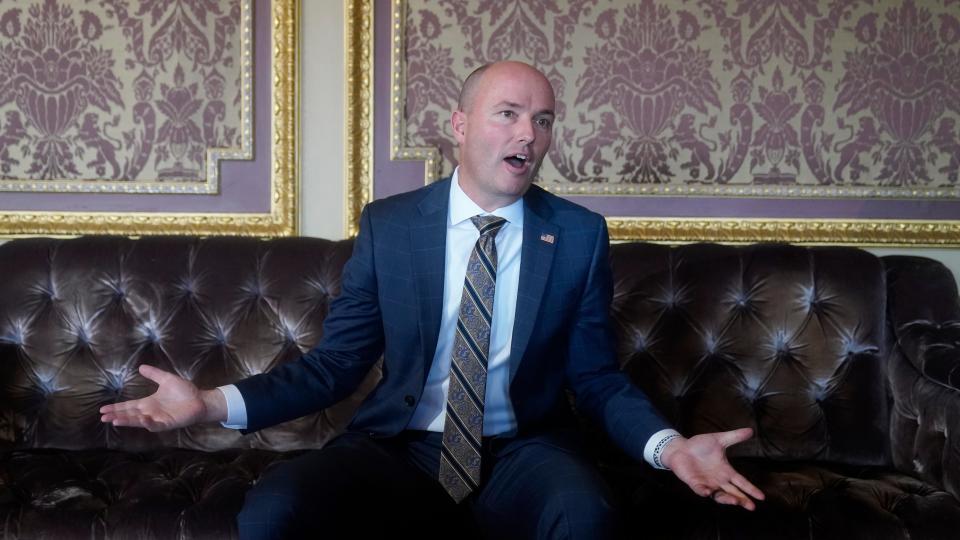
In Utah, where lawmakers ultimately overrode Gov. Spencer Cox's veto of a bill barring transgender athletes from participating in girls' sports, Cox posted a letter explaining his position on Twitter, noting that only four of the state's 75,000 high school athletes are transgender, and of those, only one is a girl.
"I know most won’t read past a headline but please read my veto letter – especially if you disagree with me," he wrote. "The veto will be overridden on Friday and then we will have a special session to fix a few things. Trans sports is a terribly difficult issue. Please be kind to everyone."
Jeanne Woodbury of Equality Arizona, a group advocating for LGBT rights, said such measures don’t necessarily enjoy broad conservative support. Earlier this year, a Republican state senator in Arizona broke with party ranks to kill a bill banning gender-affirming care for transgender adolescents.
“We have a lot of conservative allies who don’t have LGBT connections but are concerned about LGBT rights,” Woodbury said. “What we have seen with some parents is that they have conservative values – but then they have trans kids and then see themselves at odds within the party with a movement that doesn’t represent them.”
Evans, the Massachusetts conservative who attended Republican conventions with Williams, knows that feeling – and the conflict has prompted her to question her future with the Republican Party. Such legislation, she said, goes against traditional Republican values.
“It flies in the face of what conservatism was supposed to be, which is upholding individual liberties and rights and letting people be who they can be without relying on others,” said Evans, who serves as constable, a library trustee and member of the regional schools committee in Charlton, Massachusetts.
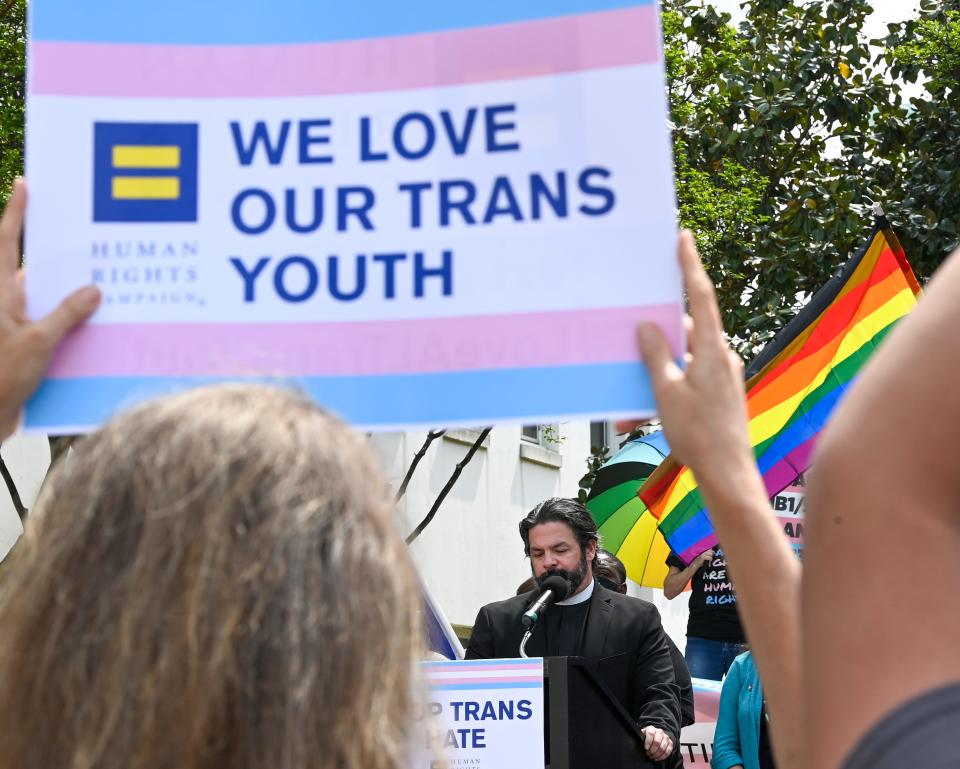
As a transgender woman, she said, “my heart aches for my community,” she said. “But I definitely do want to fight, and I know I am not alone. We are here as conservatives because we believe in the individual and being able to define our lives as we see fit and to get that slice of pie that is the American dream – but now we’re fighting over kids and what they can or can’t do.”
'Not every trans person is a Democrat'
The trans community is not monolithic, Evans said, and she’s proud to embrace conservative values.
“Not every trans person is a Democrat or a progressive," she said. "But with the way things are, many of us don’t have a political party that makes us feel at home. I advocate for what I think is good for my district, but outside of that it’s a very lonely world.”
Grayson, the Kentucky activist who has advocated for LGBT issues, said that for the LGBT conservatives he’s worked with, it’s often about looking at the bigger picture.
“We have seen over the last 20 years that views on same-sex marriage have changed, and there’s a lot more supporters in the Republican Party embracing nondiscrimination laws,” he said. “So if you’re conservative you can look at that and say, ‘The party is moving in the right direction, and I’m going to stay and help it move in these other directions because I really care about conservative issues.’”
This article originally appeared on USA TODAY: Anti-gay laws denounced by LGBTQ conservatives who want inclusion

